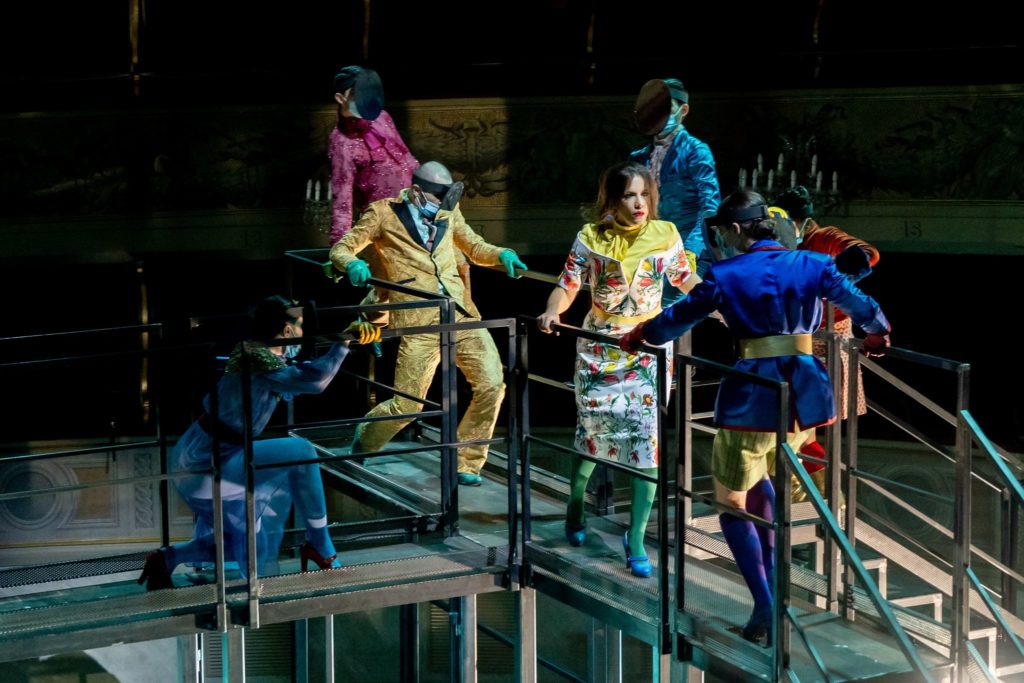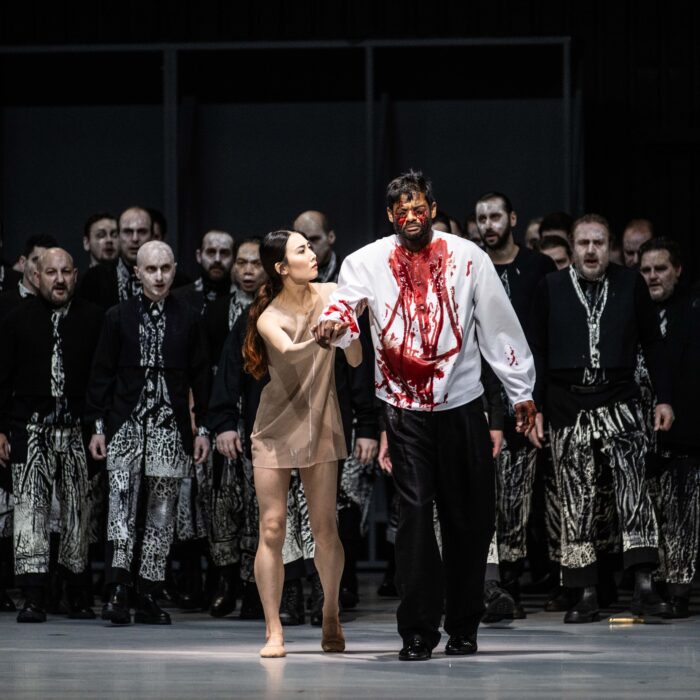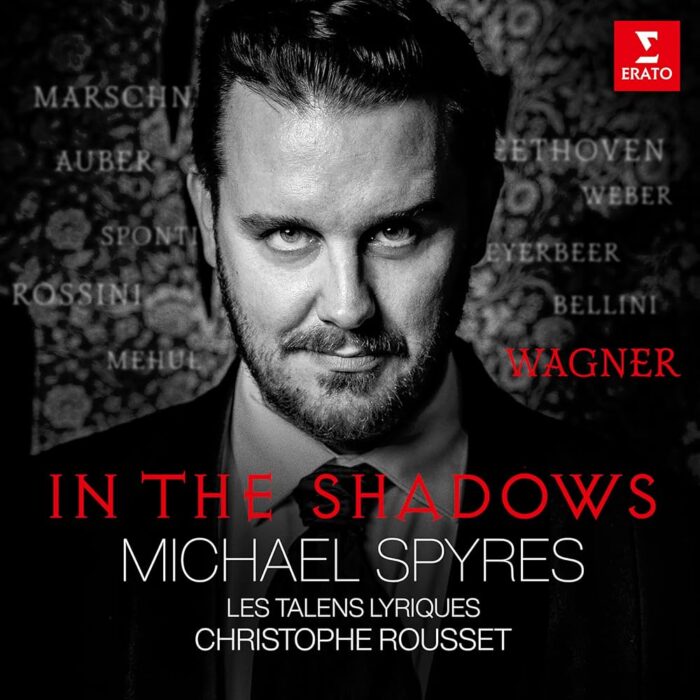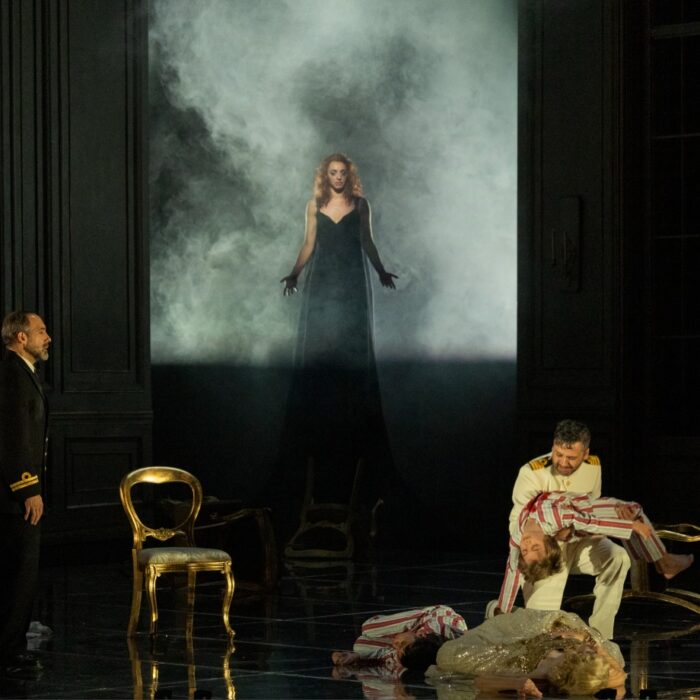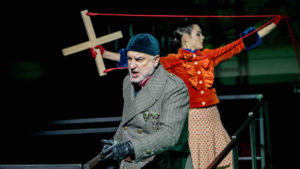
Donizetti Opera Festival 2020 Review: Marino Faliero
Michele Pertusi Triumphs on the Ruins of the Classic Opera Festival Approach
By Polina Lyapustina(Photo: Gianfranco Rota)
If I close my eyes and concentrate, even today, locked in cold, rainy Vilnius, I can easily recall Bergamo in November. Warm, yellow, and red lights make their way through the morning fog in Città Alta. Città Bassa is still dark and sleepy. It’s only 7 a.m., and right from the airport, I take a walk in a sleepy city. The first performance of the festival is only at 9 p.m., and I’ll use the day to catch the city vibes and to sleep because it’s going to be a long night.
By European standards, opera starts a bit late. So first, I have a late dinner. Later I spend three or even four hours in the theater, then continue the discussion at an even later press cocktail that goes later into midnight. A late walk down the hill from Teatro Sociale to Città Bassa will conclude the evening. Regardless of the festival edition or the specific opera you watch, all of this will make the Donizetti Opera festival something special.
And perhaps, because of all of this, I’m ready to forgive this festival a lot. I know for sure that at least one opera out of the three every year is really good. And that professionals chosen to create the productions are often the friends to the management of the festival. The director and conductor argue loudly but never hear each other. And I got used to the fact that the Donizetti Festival doesn’t want to be international, at all. Yet every year, one day in late November, I take an early 5 a.m. flight to Bergamo. Because I like it.
I open my eyes.
This year taught me a lot. To stay home, to accept more, and to expect less. Yet, I learned to dream about something special, which now comes from the screen of my laptop.
So I open the livestream page.
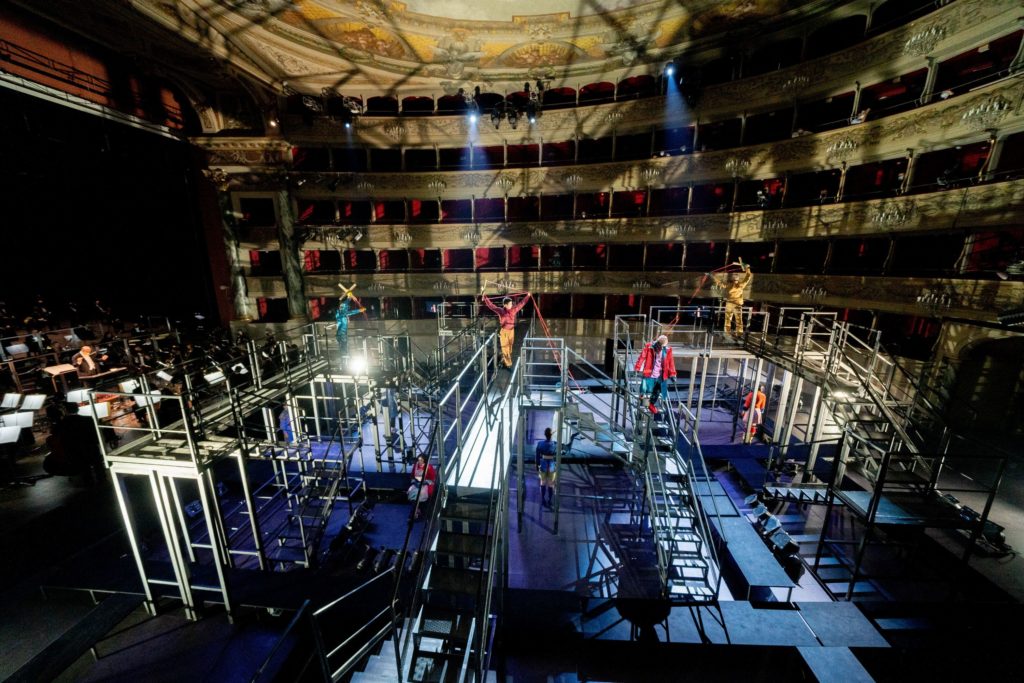
Old Habits in a New Way
Surprisingly, there’s nothing but a yellow screen promising a discussion before the performance. Arguing voices occasionally breakthrough in the background. Something is surely happening. I head to the Facebook page and find the festival officials, artists, and guests presenting the performance there.
On this night, Donizetti Opera Festival provides special festival masks for the speakers, and you can be sure, that it will be the first and last time they wear it. The masks constantly fall off the speakers’ noses every time they speak. They’re trying to fight it at first, but later let them fall and just speak. Such compliance with general safety protocols, which have long been recognized as not fair for the opera houses, will then continue on stage and during the applause.
Meanwhile, the points in the speeches are more or less the same: the famous underrated opera, conducted by Riccardo Frizza, the beautifully renovated theater, and how sad it is to open it without the audience. Perhaps, Frizza’ s reading of the score will be marvelous. So will the title role, interpreted by Michele Pertusi.
I hear an extraneous sound from another tab in my browser, Rai5 starts the broadcast, and so it’s time for me to switch. A bit chaotic, but it reminds me of running around to the Teatro Sociale in past years.
Ruining Venice
Today, the stage (multi-tiered staircases) is located in place of the auditorium. The orchestra is raised from the orchestra pit and well-distanced, so maestro Frizza conducts at 360°. The chorus is located even further away, which would probably create problems for a live audience, but mics and pickups will solve this problem.
The stage design by Marco Rossi makes the situation even worse. Hardly identified characters roam the cold metal stairs that are supposed to imitate Venice. People never meet, and we can only guess whether they even wanted or were meant to. This design obviously creates problems for singers — from most of their positions, they cannot see maestro Frizza, and with this rich and complex score, believe me, the singer has to see the conductor. But a couple of screens hidden in corners do not help.
Observing the set, I feel a very bitter sensation in the throat — this old classic opera approach – how can it survive? It’s fully broken. It will never work in this way.
Another thing ruining the performance is Rai5’s approach to filming the opera. The Italian free-to-air television channel has dealt with cultural events over decades, filming and showing opera performances every day. And over the last two years, the filming of documentaries and performances has made significant progress, which the Italian giant has seemed to ignore.
In this broadcast of “Marino Faliero” audiences were forced to watch a lot of still shots, dark scenes, and bright lights shining into the camera at the most emotional moments. There were also random cuts to stairs as the singers were performing arias taking the audiences’ concentration away from the performer. It seemed to be filmed by people who had no interest in opera whatsoever.
The Star of the Night
But the appearance of one single person on the stage turned everything in my head instantly, shaking out all the fears, irritation, and doubts. Michele Pertusi, who was praised for this role in numerous Italian theaters for almost two decades, was a triumphant Marino Faliero from the first note until the last. Producing a powerful and deep sound, this bass has an outstanding talent for phrasing. It is a voice that easily emotes the emotions in every note and every word. So complex and always conscious in every phrase, Pertusi provided numerous emotions, as only a mature and experienced artist can express and can reveal.
Perhaps, the bass was the only singer on stage that night who didn’t need the support of the maestro Frizza. Pertusi displayed great finesse in Donizetti’s music and combined with Frizza’s conducting, these two musicians worked so perfectly together, only enriching each other’s musicianship.
Singers on the Job
The rest of the cast performing this rare opera also showed some promise.
Baritone Bogdan Baciu was a strong and reliable Israele. Baciu, I believe, learned a lot from his master Faliero during the production as his duet with Pertusi was among the highlights of the night. While Pertusi gives a solid background, a more flexible and vivid baritone draws a vigorous picture of thoughts and actions upon it. Baciu gave a strong performance singing in the higher range and keeping the power in his voice while also providing convincing emotions. The chemistry between Pertusi and Baciu was also palpable, especially during the Act one duet.
Francesca Dotto also gave a confident performance getting through the vocal challenges with her head held high. Her voice is always consistent and bright and she has a masterful and rich middle range. It is so powerful and juicy she is able to sing the lines with an immense array of colors. Dotto also sang with flexibility particularly in her Act three aria which is a mix of fierce coloratura and long legato lines. The soprano particularly relished the pianissimi and the dynamics in the aria, showing off a wide-ranging vocal color palette and expressing the character’s distress. It also allowed her to save her energy for the mighty breakouts into the high range.
Michele Angelini took over the role of Fernando on short notice as Javier Camarena was forced to cancel. The American tenor began preparations for his role debut just two weeks before the performance. That is not nearly enough time to prepare for this role, which requires high tessitura and devilish coloratura lines. But Angelini was up to the challenge and the voice was perfect for Fernando. He has strong, rich high notes and flexibility in the coloratura. When the character of Fernando is alone, he gives free rein to emotions, getting higher and louder. Fernando’s intentions are hidden by his moral principles most of the time and Angelini’s ability to provide a well-built, but gentle piano sound with great volume makes him perfect in quintets and duets.
Giorgio Misseri sang the romantic gondolier and threatened to steal the show with his passionate song. All arguments about the set and the bad camera angles were stopped and it was all about the gorgeous lyrical lines sung by Misseri. He displayed a clean, tender, and flexible tenor that shows great promise.
In the discussion
The live discussion, which I mentioned, became a very special part of the experience. In any other conditions, I would call live commenting on the opera inappropriate, but Italian people surely do it with emotions and charm.
And you know what I felt in this discussion? I felt a lot of agony. It was torture to hear silence after an amazing barcarole. There was this desire to clap and stomp to make Bergamo hear this applause. The passion was overwhelming. There was this vast anger about what they had to see but could not react to. These comments were so loud.
And yet, the opera was louder. Or quieter? Simply greater. In fact, on this night, I’m ready to proclaim that we were able to hear the finest existing performance of “Marino Faliero.” Yes, this is an underrated masterpiece, and yes this production was underrehearsed. But it was built on the spines of the musicians, each of whom would die to do it better. Ultimately, they were truly astonishing.
As the music ended, the angry and arguing mob in the live comments got silent. We watched the singers taking their bows. They were tired, almost crying in this unnatural silence. And just like that, the online audience united in a way that Italy has likely never seen before. In the barrage of messages, they all sent only one simple word (the best one in the Italian language) – “GRAZIE.”
